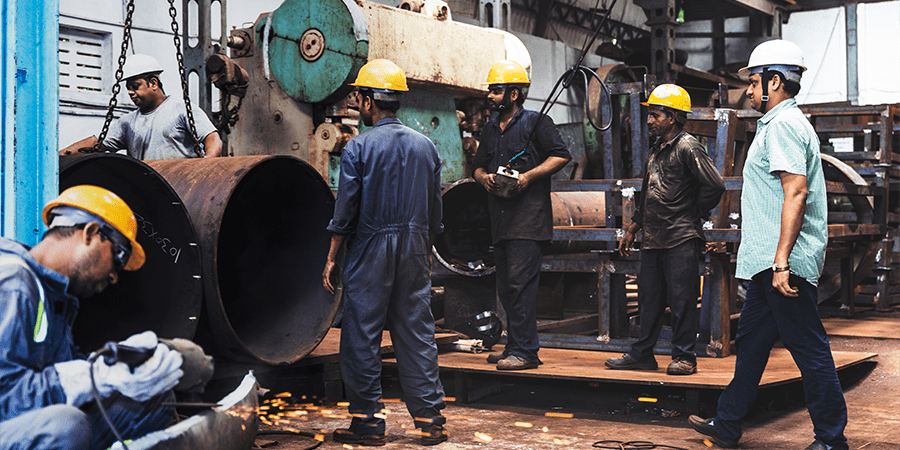
Industry remains an integral component of the economy of Punjab, with capabilities in the entire manufacturing value chain, from R&D and design to marketing and sales. Punjab is building successful partnerships with foreign firms, strengthening domestic capabilities and forging strategic links.
Industrial work is shaping up to be the most cost-competitive, motivated, and highly productive. Punjab with excellent capabilities in industrial and business management, technology, R & D, production, services and international market development is ensuring that the State stays on the path of industrial progress. The state of Punjab is aiming to be the most industrially developed state in India in the next 25 years.
Therefore, to give fillip to industrialisation in the state, the Punjab government recently announced its new incentive-based Industrial policy. The State Industrial Policy has come out with a mechanism to provide a well-oiled system to the entrepreneurs setting up facilities in the State. With the advent of this policy, Punjab is all set to be a “game changer in Industrial Investment and Promotion” in the region.
The New Policy besides focusing on inclusive growth, tapping the inherent advantages of the state, lays the blue print for Industrial revolution for the next 25 years. Under the policy, the state has approved a liberal package of fiscal incentives for a wide variety of sectors with special focus on manufacturing, integrated textile units, agro and food processing, electronic hardware and Information Technology.
The policy postulates that the state will offer a range of incentives for the sectors mentioned above in terms of reduction and exemption from of
The new policy announces 24-hour power supply and an exemption from the Punjab Pollution Control Board as well as exemption from all labour laws, which will play the role of a catalyst for a massive industrial growth. The exemption from all labour laws is a unique policy decision which is bound to benefit industry in Punjab, be it the old or the new.
For a better and more well spread industrialisation, based upon the strengths of each region the State Government has divided the state into two zones, Zone I, which is a less industrialised zone and Zone II, which is a highly industrialised zone.
The maximum fiscal incentives are offered to areas falling in zone-I. To speed up the industrial development in these least developed areas, fiscal incentives are offered in the form of exemption of VAT from a minimum of 50 percent to a maximum of 80 per cent. Special focus is on select areas such as new manufacturing including textiles and agro and food processing sectors. Whereas, in the case of Zone-II the quantum of incentives has been restricted to the maximum of 40 percent in VAT and 50 percent in CST exemption.
For agro/food processing industry, the new Industrial Policy provides benefits in terms of reduction in mandi fee, rural development fee, infrastructure development cess incentives, besides purchase tax incentives on wheat and milk. According to the new policy, no purchase tax would be levied on wheat and milk purchased and processed in the state. It has also been decided that no VAT/Entry Tax will be charged on farm equipment.
For electronics, hardware and IT sectors, the level of tax exemption goes up to 100 percent. Besides, there will be 100 per cent exemption from payment of stamp duty, electricity duty and property tax and 75 per cent in payment of Central Sales Tax (CST).The Policy announced for creation of a land bank of 5,000 hectares to accommodate massive new projects and industry expansion across the state.
The New Industrial Policy focuses on three points:
With the advent of the New Industrial Policy, there will be elimination of all the earlier steps of the Screening Committee and the Empowered Committee. Instead it will make Punjab the first state to provide online approvals in the most transparent manner.
In conclusion
Finally, the Industrial Policy-2013 is as an aggressive, incentive-based policy that, besides changing the paradigm of industrial development, should facilitate investment in the state. Such a lucrative policy opens a window for massive investment opportunities in the form of new business ventures or joint ventures in terms of mergers and acquisitions with the existing industrial houses in the state.
Although the Industrial Policy and the approach of the Government is pro-active towards setting up a new business, the mechanics of the policy, its implementation and following of rules can be quite cumbersome and tedious. It is for enabling a smooth functioning with no wastage of time and resources, the role of investment advisors is relevant. SMA Legal has helped its clients, of all nationalities, to successfully establish business ventures in India. Our firm has also helped various International firms to work with private industry, institutions and the Government. Our knowledge of the local laws coupled with our experience of working with the Government is an asset which helps an investor to work within a legal framework in a systematic, timely and profitable manner.
If there is any more information required on this issue or any other issue, do write to [email protected].
Gurkirat Sachdeva
Ex-employee,
SMA Legal
©2024 SMA Legal